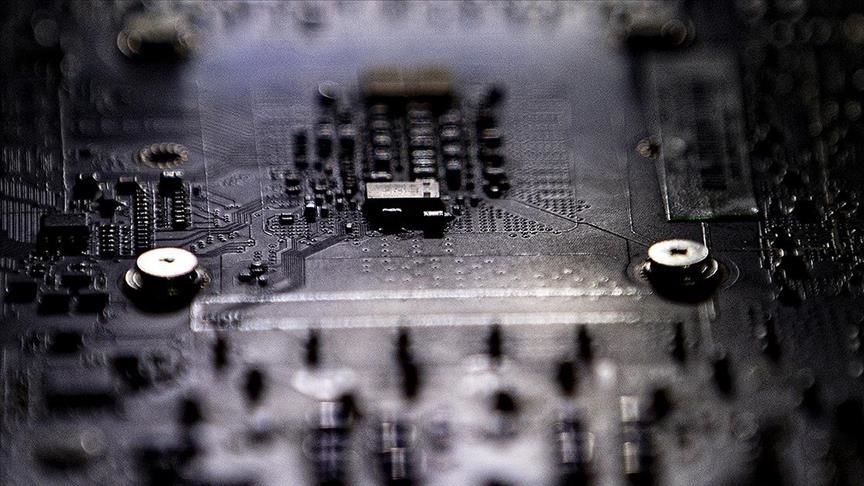BERLIN/WASHINGTON
Governments are being driven to strengthen their position within the global chip supply chain due to the growing strategic importance and economic competitiveness of semiconductors (chips) and geopolitical tensions.
The semiconductor industry is the driving force behind technological innovations such as artificial intelligence (AI), electric vehicles (EVs) and automation and plays a vital role in economic prosperity and national security.
The global chip shortage during the coronavirus pandemic revealed vulnerabilities in the chip supply chain which put many technologies and essential products used in daily life at risk.
Today’s rise in global competition to support the chip industry has resulted in the rapid growth of the chip market.
Some governments, long aware of chips’ strategic importance, are trying to support manufacturers financially. Countries such as Malaysia, India and Vietnam have started using a three-pronged approach to attract investment: forging technology alliances with the US, transferring knowledge from global chipmakers, and offering subsidies.
As the race for technological dominance between the US and China escalates, the two countries continue investing in their tech companies to get an edge.
Global chip market size expected to reach $588.4B in 2024
Chips are used in many electronic products, ranging from smartphones and computers to cars and medical devices, and as the demand for these products increases, so does the demand for chips.
The recent interest in AI technology significantly contributes to the increased demand for chips.
According to data from the World Semiconductor Trade Statistics, global semiconductor sales are projected to jump 13.1% in 2024 to reach $588.4 billion as demand for chips used for artificial intelligence increases.
Data from the Semiconductor Industry Association reveals that global chip sales decreased 8.2% in 2023 to $526.8 billion and reached their highest level in 2022, at $574.1 billion.
Analysts say the long-term outlook for the chip market is robust, with chips playing a more prominent and significant role in the many products the world depends on.
Among the world’s major chip companies are Taiwan Semiconductor Manufacturing Company (TSMC), Intel, Qualcomm, SK Hynix, Micron Technology, Nvidia, Broadcom, Advanced Micro Devices (AMD), Texas Instruments and MediaTek.
Asia-Pacific dominates chip market
The Asia-Pacific region is the largest market for chips, accounting for more than half of the global market share. Some of the world’s largest semiconductor companies such as TSMC, Samsung Electronics and SK Hynix operate in the region.
Although not the biggest chip producer, China is the biggest chip consumer. The country is also the largest producer of gallium and germanium, elements used in chip production.
China enabled 52 factories since 2018 through a range of financial support programs of more than $50 billion in funds including grants, equity investment, public incentives, favorable loans and tax breaks as the country set a clear national goal in its five-year development plan to achieve self-sufficiency in all segments of the semiconductor value chain.
US aims for leadership in chipmaking
North America is another significant region in the chip market, with the US being home to some of the world’s largest chipmakers such as Intel, Qualcomm, AMD, and Nvidia.
Intel is a major microprocessor supplier, Qualcomm makes smartphone chips and AMD produces graphics processing units, or GPUs.
The US government sees AI as the defining technology of this generation. Those who cannot produce state-of-the-art chips cannot take advantage of and therefore lead the AI market.
Although the US accounts for 25% of total chip demand, the country has seen its chip production capacity decline from 37% in the 1990s to 12%.
Considering China’s efforts to strengthen its position in the industry, the US is concerned this will pose a significant threat to national security.
The Biden administration aims to recapture the country’s leading position in the chip industry and the global technology race.
The CHIPS and Science Act, signed on Aug. 9, 2022, aims to increase domestic semiconductor production and alleviate the chip shortage that disrupts production in many sectors, from automobiles to electronics.
The bill includes $52.7 billion in support for semiconductor production and a four-year 25% tax cut to encourage the establishment of semiconductor factories.
The current US administration also aims to use the investments to produce 20% of the world’s advanced logic chips.
Europe finds its position in the chip race
Europe is in the race to become a significant player in the semiconductor industry with companies such as the Netherlands-based NXP Semiconductors and ASML Holding as well as Germany-based Infineon Technologies.
NXP Semiconductors is a leading supplier of semiconductors to the automotive industry, while ASML Holding is a major supplier of lithography systems used in semiconductor manufacturing.
As for Infineon Technologies, it also supplies semiconductors to a wide range of industries.
The European Union is taking concrete steps to strengthen Europe’s strategic autonomy in chips, including plans for countries to allocate up to €35 billion ($37.9 billion) to boost its advanced semiconductor manufacturing capacity.
The EU’s 2022 legislation to support chip manufacturing is said to have attracted more than €100 billion in investment.
Chip industry sees record investment
Investments in the chip industry have reached record levels as countries such as China, the United Arab Emirates, Germany, and the US strongly encourage chip manufacturing for “independence.”
Semiconductors, also known as microchips, are not only the backbone of today’s interconnected world but are also becoming a competitive area between countries.
Efforts to develop near-human-level AI systems are also reshaping the global semiconductor industry. Many countries are striving to supply Silicon Valley’s most sought-after products and participate in the global AI arena.

